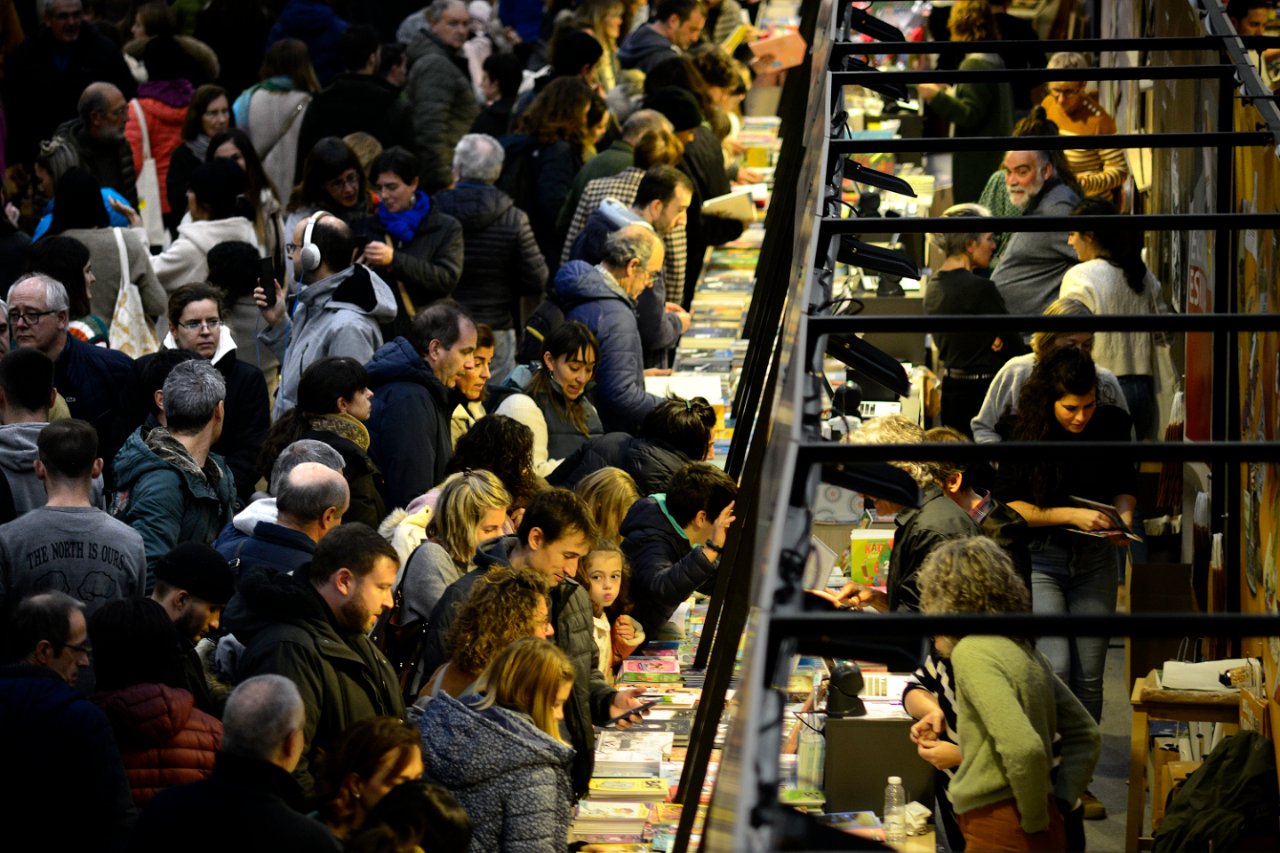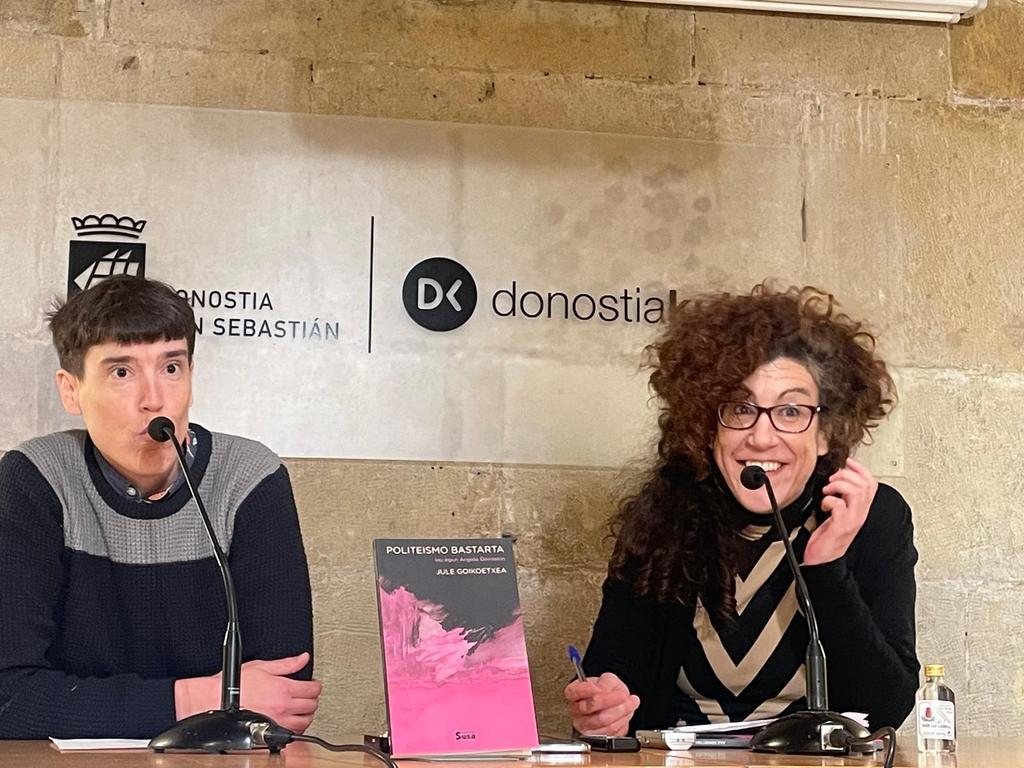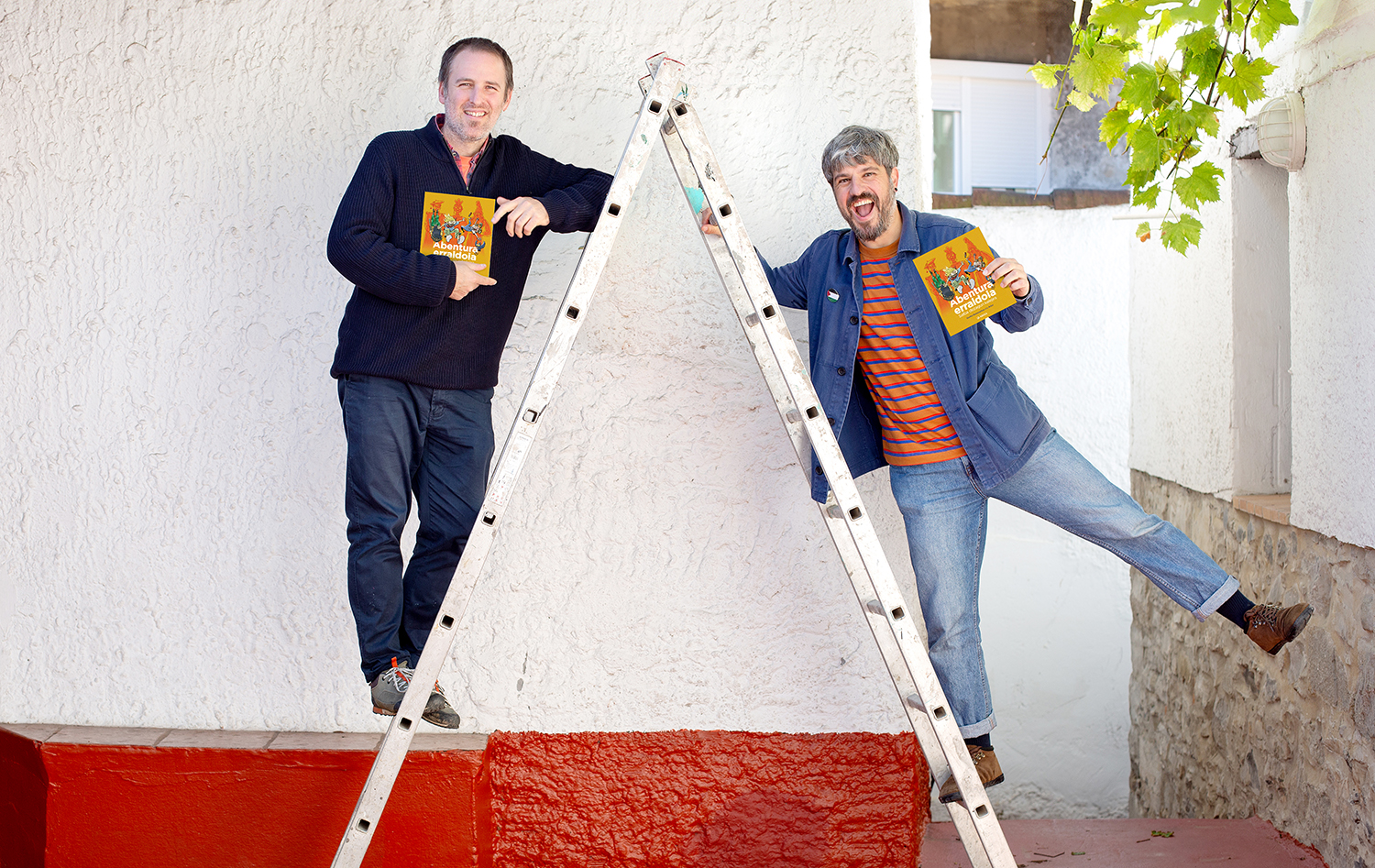“I have become the process of seeking and not finding motherhood”
- Among others, Alaine Agirre (Bermeo, 1990) is the author of the novels Cuajada Blood, X has died , Twice gave birth to my mother and Camisón blanco de seda and the book of poems The place where birds do not arrive. Bring the silenced to paper. In September 2021 he published Karena (Elkar, 2021). Two years later Spanish has come: Placenta (Three Sisters Books).

"Paperean eskribitzen ikasi aurretik 'idazten' nuela uste dut, gehiago bizi bainintzen asmatzen nituen istorioen munduan, kanpokoan baino. Gogoan dauzkat sei urteren bueltan irakurri nuen lehen testua eta idatzi nuen lehen ipuintxoa, zerbait handia bezala sentitu nituelako biak. Hortik aurrera, liburuei eta koaderno baten barruei begira bizi izan nintzen. Zaila egiten zitzaidan patioan egotea, nire adinkideekin harremantzea, kiroletan ibiltzea... eta eskolako liburutegian ezkutatzen nintzen. Eskola orduetatik kanpo ere liburuen mundua zen nire lekurik gogokoena. Gotorlekua izan zen niretzat literatura, haize eta euri eta hotz sentitzen nuen kanpoaldetik babesteko".
What have been your referents?I only did a
lot of the way to educate in reading – taking away a couple of teachers I remember and have in my heart – and that is a pity, that I would not have helped develop literary competence.
What about feminism?
I felt it in a similar way. The interior asked me to go there, but I didn't know where to start. In one of them, I discovered Miquel Missé and started reading with feminism. I entered feminism from the transfeminismo.Los referents have traveled because I took them according to the curiosity and necessity I have had at the moment, but over time I return to
Annie Ernaux, I am surprised that even though I change, I do not change the complexity of what I feel when reading. On the other hand, the names of all references do not appear on the covers of the books. Today, for example, my therapist is a benchmark for me, not idealized, because of his way of seeing politicity and the personal realm. My great reference these days is also a person who works as a teacher of children, who is opening me many doors sharing books and reflections.
Lately I have heard with contempt that we are experiencing a boom in maternity books. What do you think?
I am disturbed by this comment. We do not speak and write enough about motherhood, but since it has been rejected and has now been given a small fee, there is a feeling that it is taking up too much space. We are fed up with the hegemonic, idealized, medicalized and prescribed by men of motherhood, that is true, but of that almost endless ocean of plural motherhood we know nothing. And look at how many colors and temperatures there are in a sea. We must count the maternities from our bodies and our voices, also hearing those that do not correspond to our experiences.
Explain further, please.
I am not interested in the pathological, paternalistic, penalizing and pressure speeches that come from the so-called “experts” and their supposed “neutrality”. The same is true of neurodivergence. I am tired of listening to psychiatrists, psychologists and other “professionals” who hide behind the white coat and who look more at DSM-Va than people: from autism I have not really learned until I have heard first-person testimonies and claims from the autistic collective.

You are interested in those who keep quiet...
Yes, the gaze leaves me without looking there, because I surely do not want to stay on the surface of the conventions. And once the taboos are naked, why not really undress? For example, if we talk about assisted reproduction techniques, we will not do so with the phrases and images that a dedicated company places in the propaganda of the bus canopies. Or if we talk about unsought abortion, don’t make clichés like “you’ll have another” and “for
something it would be.” How does taboo affect women's mental health?
It affects health in general, because actually, could we differentiate mental health from physics, as much as tobacco itself. How and to what extent? I do not know how I could tell myself how and to what extent it has affected me, although I know that at many levels, at great depth, all areas of life and for a long time it has affected me. It has taken me away, but it has also given me, and above all I have become the process of seeking motherhood and not finding it. It has been an inevitable process and vital learning for me. However, another thing is that this process, which you in your day comes to mind, has to take it in secret, you feel lonely, you have no references to help you understand yourself, you do not take away the weight of guilt and the viscosity of shame… The process is natural, you have to go through and write yourself, while the tobacco that picks up the process is cultural and puts a lot of suffering on the process and hinders its transit.
Does the system adequately attend maternity hospitals?
Clearly not. And it can be seen more clearly than in my words in the book M by Erika Lagoma and Estitxu Fernández, in My Stolen Birth by Nahia Alkorta, in Poor Maternities by Diana Oliver, and in the words of many others: Ibone Olza, Esther Vivas… Who
hasn’t read it yet, why do you recommend Karen?
In Karena there is a dialogue of pain. And ask questions and look for personal answers. There is also a dialogue between the social pressure of motherhood and the desire of the character, to understand to what extent the desire to be a mother is “of oneself” and is contaminated by culture. The novel narrates a life process in which I would like the reader to go crazy, showing the traveler landscapes within the protagonist. Whispering those who are silent, sometimes even repulsing.
Beware of that view of the South. Firstly, to demystify the blind admiration of the green land, the white houses and the red tiles, unconditional love, fetishism associated with speech and the supposed lifestyle. It leaves, as Ruper Ordorika has often heard, a tourist idea... [+]
Let's talk clearly, bluntly, without having to move later to say what I had to say: this game, which consists of putting together the letters in Basque, happened to Axular. Almost as soon as the game is invented, in such a way that in most of Gero's pages the author gives the... [+]


















.jpeg)





